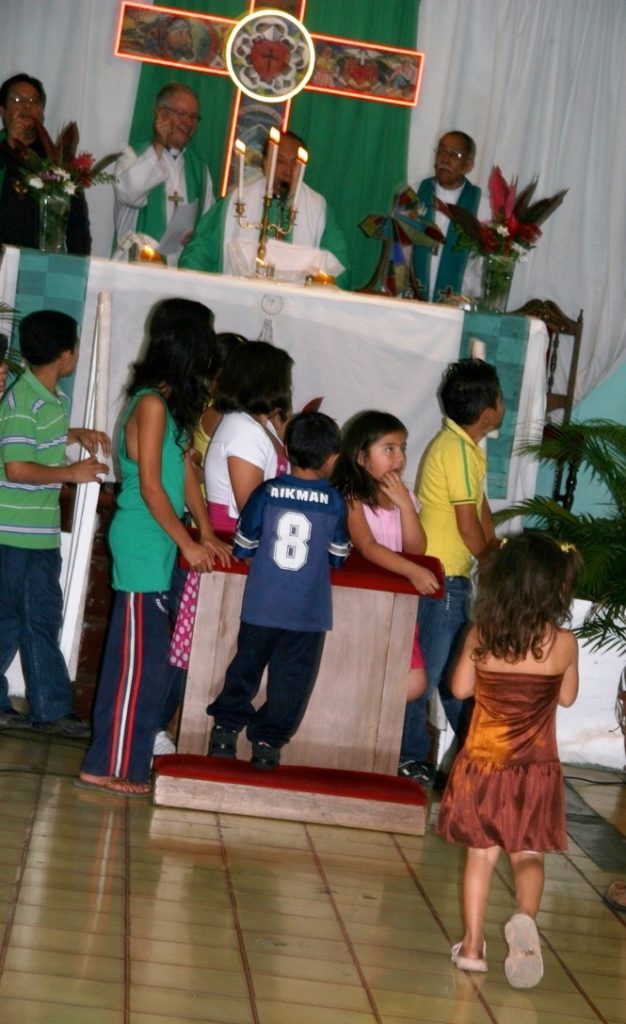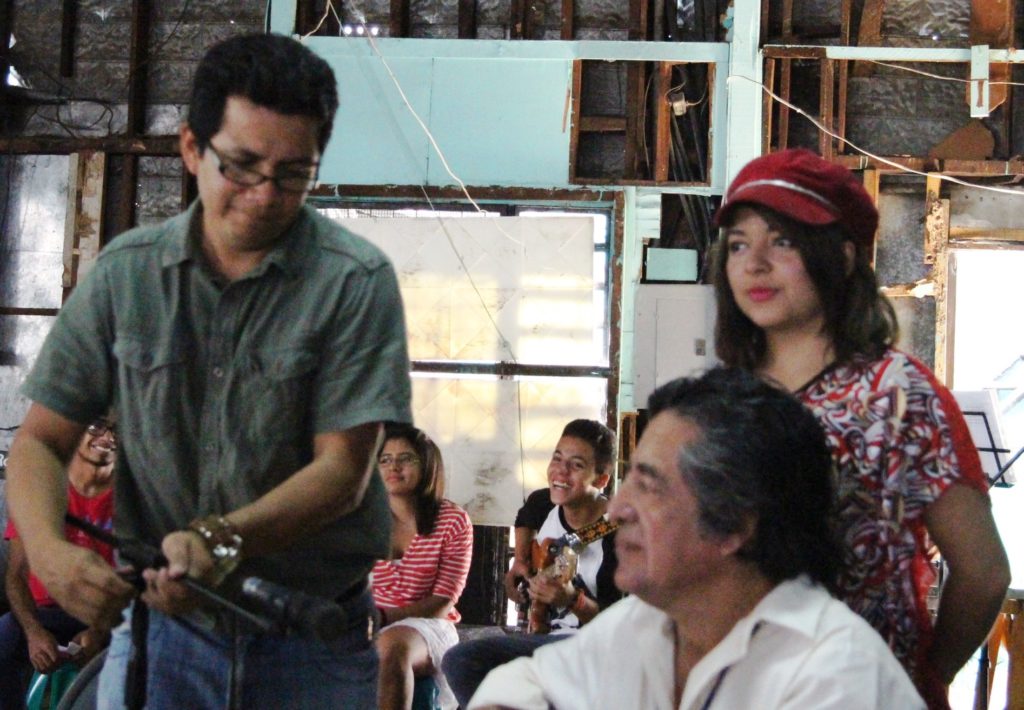Esta historia se escribe en Español = This story is also written in Spanish here
“When someone listens to the
youth and can offer alternatives they can be part of the solution and they can
change.”
Editor’s Note: For over a year we have heard about an insightful person named Vladimir with a stellar reputation for working with the youth at his church. It wasn’t until today was half over and we began this formal interview that it clicked. This is the SAME Vladimir we’ve been hearing about! Today he accompanied us out into a rural campesino community to touch base with a few of our scholarship students regarding their needs for the coming school year as well as renew other friendships. The fact that he himself is a university student turned out to be a valuable resource to our girls. He could answer their questions, guide them, and give them the support they needed. What a blessing it was to have Vladimir who shared his perceptions of the church in El Salvador with us today
Were you raised a Lutheran?

No, I was the first in my family of three brothers and four sisters to attend formal churches. My parents are evangelicals. I was born in Santa Ana on December 6, 1972. First I began attending a Methodist Church, but later I went to a Lutheran Church which appealed more to me because it had a heart for the poor. The Lutherans in this country have always worked with the poor and seemed more personal to me as they went out into the communities. I perceived them differently.
Who were your early role models?
Monsignor Romero and when I was a teenager, Martin Luther.
Tell us about your education.
When I completed high school in Santa Ana, I studied for two years in the Central America Technological Institute in order to get a job. Next I attended ULS (Salvadoran Lutheran University). At that point I investigated which country had the best theology program to offer me. I looked at Mexico, Argentina, and Brazil. Even though it meant having to learn another language, I chose Brazil and studied Portuguese for six months before enrolling in the post graduation theology program in San Leopoldo, Porto Alegre, Brazil program (EST) for two years. I don’t regret it. I am continuing my theology studies here at Lutherano University in San Salvador.
Are you working also?
Yes, I was raised by hard-working parents. My dad is an upholsterer, and my mother works in clothing marketing. In order to support my family I work for a small computer company while I study at the university.
At Resurrection Lutheran Church in San Salvador I serve as its youth pastor.
Tell us about your family
My wife and I have been married for 17 years. She is in business administration. We have two sons. My older son is now in his second year studying chemistry and pharmacy at a private university. I love that he decided to go into a field that will help our society. We need good and cheap medicines. My younger son is still in high school. He plans to study communications.
We continue to be a musical family. We often lead worship services at our church. All of us enjoy singing and playing musical instruments.
Can you share some of the highlights of your youth group work at Resurrection Lutheran?
When I first began there several years ago, there were about four youth regularly attending events. Now we have 25-30 constantly. With the financial help of a Swedish gift which the youth administer, we created three areas of programming: music, teaching English, and sports. The youth have responded very well to these programs. We were searching for alternatives to the violent circle some of them live in. Many live in areas that have a threat of gangs. Violent environments make people lose hope, so we are always looking for something beyond that violent circle to improve life for our youth to encourage them. The youth group at my church has grown to a core group of 50 young people who enjoy participating in activities such as a Brazilian drum group. They also look forward to attending about five weekend youth retreats a year which my wife and I lead. The bishop invited me to attend an international youth conference being held in the Middle East.
What do you find most satisfying?

Seeing the lives of these young people change. Many of them have problems, but they need to be heard. When someone listens and can offer alternatives, they can be part of the solution and they can change. To see these changes from violent to peaceful means and to make their dreams come true give much satisfaction.
What do you see that needs to be worked on at a larger level?

Justice at all levels – in government, in people, in society, in church, in the heart. If we are going to speak about justice in the church or society, we must first practice justice by example.
What are your dreams?
On a personal level it is for my sons to have university educations and careers. I have now graduated and been ordained as a Lutheran pastor. For myself and for the pastors here, it is difficult in this country for a working pastor to live a dignified life without working a second job.
My computer work continues to sustain my family financially. I would like to see that change. I hope to be assigned to a church of my own at some point.
For my country in general, I would like to see equality at all levels.
What motivates or inspires you?
Only Jesus Christ.
What gifts have you been given?
All of them; I just need to put them into practice and center my life around Christ.
The bishop recognizes my strong theological background; I teach and reinforce church doctrine regularly to the group of Lutheran pastors in our country who will be ordained.
How do you encourage others within your church?
With the youth in particular, I tell them getting an education will improve their lives. That is one reason I came along with you today. I wanted to learn firsthand about people living in communities like this rural one so that I could see what is happening here and know what their needs are.
Now that you are here, what are your prayers of intercession for these people?
I have several prayers. First, Lord, give these people the help they need to improve their living conditions so they can have a more dignified life. Second, Lord, help the children of these people lead a better life. Last, for the country as a whole, that people who have economic, political, and religious power please stop thinking of yourselves and begin to think of others.
We must be part of our own prayers by putting something of ourselves into our prayers and not leave it all to God.



